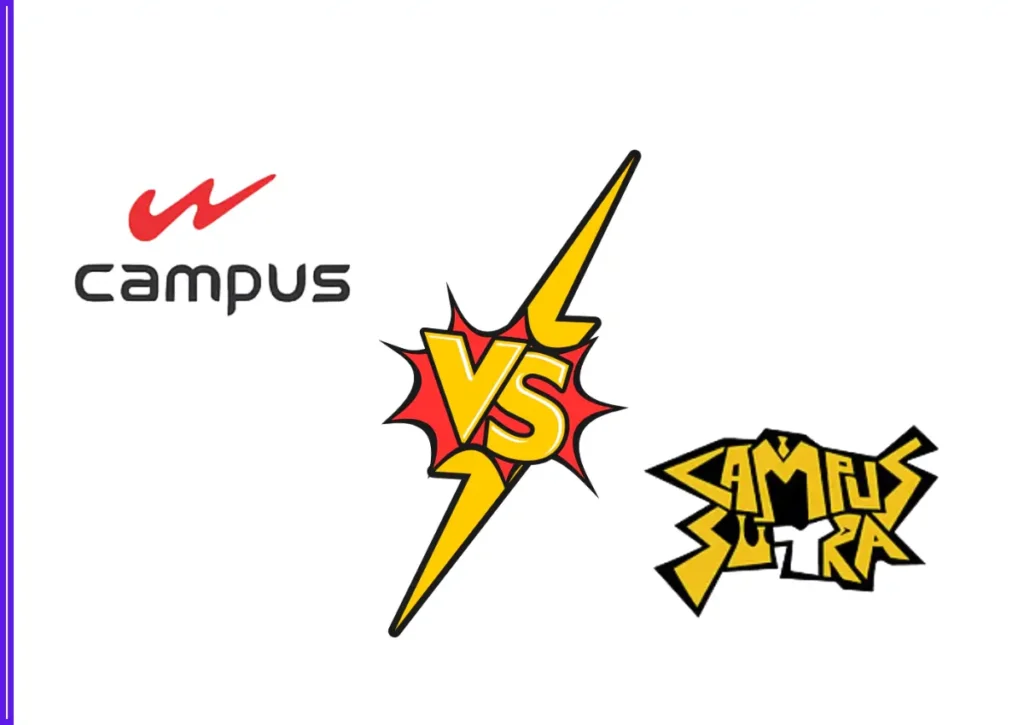In a significant development in India’s trademark law landscape, the Delhi High Court has issued summons to Bengaluru-based fashion label Campus Sutra in a suit filed by leading footwear brand Campus Activewear. The legal dispute arises from alleged trademark infringement and passing off, with Campus Activewear accusing Campus Sutra of misusing the “CAMPUS” trademark—particularly on footwear products—thereby causing confusion among consumers and diluting the distinctiveness of its brand.

The case was heard by Justice Amit Bansal on July 15, 2025, who took note of Campus Activewear’s arguments that it holds exclusive rights to the “CAMPUS” mark in relation to footwear. The company claimed that the continued use of the word “Campus” by Campus Sutra, even when slightly modified, created a deceptive similarity that could mislead customers into believing both brands were related or endorsed by each other.
Campus Activewear, a market leader in casual and sports footwear, has built a strong brand identity over years, targeting young urban consumers. With its wide retail presence and brand recognition, it argued that any overlap in branding—especially by a fashion company also selling footwear—poses not just legal concerns but also a serious threat to its consumer trust and market goodwill.
In response, Campus Sutra’s legal counsel, Senior Advocate Amit Sibal, stated that while Campus Sutra has been operational since 2012, the use of the term “Campus” alone in a few of its footwear listings was unintentional. According to the defense, only three such listings were ever found, and corrective steps had already been taken by removing those products from all e-commerce platforms.
Moreover, Campus Sutra has clarified that their core trademark, “CAMPUS SUTRA,” is a distinct phrase that forms part of a larger brand identity unrelated to Campus Activewear. They maintained that the name was chosen in good faith and has been used consistently for over a decade across thousands of apparel and accessory designs.
Nevertheless, the Delhi High Court issued summons to Campus Sutra, requiring them to file a formal response within 30 days. The Court has not yet issued any interim injunction on Campus Sutra but has taken note of their voluntary undertaking that they will not use “Campus” as a standalone brand element until the next hearing.
Justice Bansal emphasized that both parties should consider exploring an amicable resolution through mediation or out-of-court settlement, highlighting the commercial implications and the reputational damage prolonged litigation could cause for both sides. The next hearing is scheduled for November 10, 2025, where the court may take a view on the interim relief sought by Campus Activewear and assess the merit of the arguments presented.
Trademark experts believe the case could set a precedent for how Indian courts view partial overlaps in brand names—especially when the disputed term is common or generic. While “campus” is a commonly used word, its registration and long-standing association with one brand in a particular category may warrant legal protection against perceived misuse in closely related product lines.
The lawsuit also reflects a broader trend in India’s growing fashion and lifestyle sector, where digital-native brands like Campus Sutra operate in a fast-moving e-commerce landscape. This often results in occasional branding overlaps with older, more established companies, leading to legal friction.
Campus Activewear’s legal team has made it clear that their objective is not to stifle competition but to protect their trademark from dilution, particularly when competitors enter adjacent segments such as footwear. They are seeking a permanent injunction, removal of infringing listings, and an assurance that the term “Campus” will not be used in any standalone form or in ways that could confuse consumers.
Meanwhile, Campus Sutra has reiterated its respect for intellectual property rights and stated that it will fully cooperate with the legal process. Company sources also indicated that they are open to a negotiated settlement, provided it does not compromise their own longstanding brand identity and operations.
As the case proceeds, all eyes will be on whether the two companies can resolve their differences or if the legal battle will move forward into a full-fledged trial. Either way, the outcome could influence how courts balance trademark exclusivity with creative branding freedoms in an increasingly crowded and competitive Indian fashion market.
The matter will be next heard on November 10, where further directions may be issued regarding interim protections, evidence submissions, and the possibility of mediation between the two parties.









